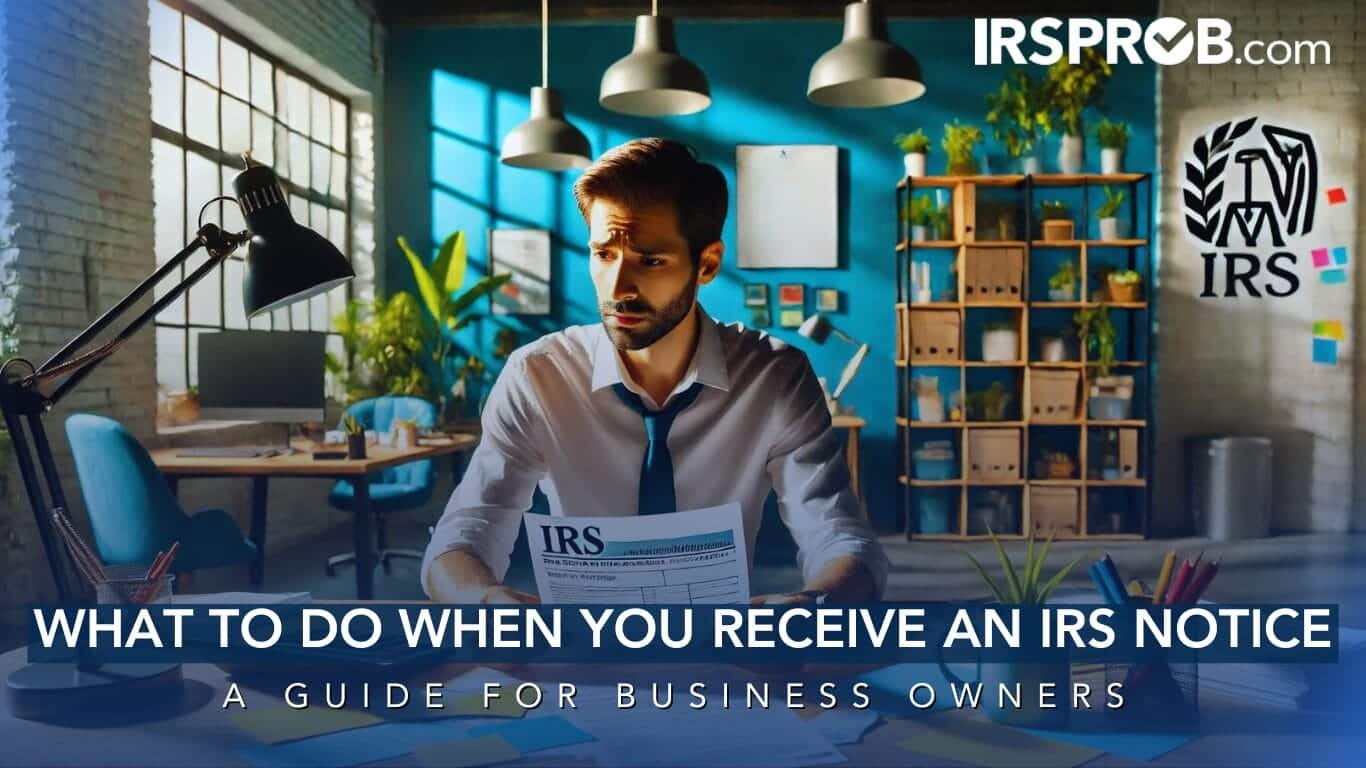
As a business owner, receiving a notice from the IRS can feel overwhelming. However, it’s important to know that not all notices are cause for alarm. Each year, the IRS sends millions of notices to taxpayers, often dealing with simple issues that can be resolved easily. Understanding how to respond appropriately can help you avoid unnecessary stress and penalties. Here’s a practical guide to navigating IRS notices for business owners.
1. Don’t Panic, But Don’t Ignore It
Receiving an IRS notice might feel intimidating, but many of these letters involve minor issues. First and foremost, remain calm and thoroughly read through the correspondence. However, it’s crucial not to ignore the notice, as many of them include a “reply by” date. Ignoring the notice can result in additional penalties, interest, or more aggressive IRS actions like liens or levies.
2. Know Why the IRS Sends Notices
The IRS sends notices for a variety of reasons, and each letter will clearly explain the specific issue. It could involve:
- A change in your tax account
- A request for additional information
- A correction to a tax return
- A request for payment
Compare the information in the notice with your records to ensure the IRS’s claim is accurate.
3. Contact Your Tax Professional
One of the most important steps you can take is to consult with your tax advisor. If you have a tax professional, they are equipped to assist you and can even contact the IRS on your behalf. Depending on the complexity of the issue, you may need to sign IRS Form 2848, Power of Attorney, allowing your advisor to communicate with the IRS directly.
4. Agreeing or Disagreeing with the Notice
If you agree with the IRS’s correction, there may be no further action required unless you need to make a payment. However, if you disagree, it’s critical to respond promptly. The IRS allows you to contest their findings, but you must do so in writing, explaining why you disagree and including supporting documents.
Always be courteous and professional in your response, and make sure to include any relevant documents. The IRS generally allows about 30 days for a response, so be sure to act within that window to avoid further complications.
5. Handle Correspondence Without Visiting an IRS Office
Most IRS matters can be resolved through written communication. However, if you have specific questions, the IRS notice will include a phone number where you can reach a representative. Before calling, ensure you have your tax return and the notice available to make the process smoother.
6. Keep Copies of All Correspondence
Documenting all interactions with the IRS is crucial. Keep copies of any letters you receive, as well as any responses you send. These records may be important if the issue arises again or if there are future disputes with the IRS.
7. Know Your Rights as a Taxpayer
The IRS is required to explain and protect your rights as a taxpayer. You have the right to:
- Privacy and confidentiality
- Professional and courteous service
- Representation by a qualified individual, such as a tax attorney or CPA
If you believe an IRS representative has not acted professionally, you can report the incident to their supervisor.
8. Avoid Future IRS Issues
To minimize future problems, ensure your tax returns are filed accurately and on time. This includes:
- Waiting to file until all relevant documents (W-2s, 1099s) have been received
- Checking your forms for accuracy
- Keeping thorough and complete records
- Filing electronically to reduce errors and maximize deductions and credits
As a business owner, it’s also wise to work with an experienced tax preparer who understands your specific circumstances. Proactive tax planning can prevent many of the common issues that lead to IRS notices.
9. Seek Help for Unresolved Tax Problems
If you face a significant hardship or struggle to resolve an issue with the IRS, the Taxpayer Advocate Service is available to provide special assistance. They can help you if you’re experiencing difficulties that could harm your business financially.
10. Payment Options
If the IRS notice includes a request for payment and you’re unable to pay the full amount, you may be eligible for a payment plan or installment agreement. Be sure to explore these options to avoid further penalties or interest charges.
Conclusion
Receiving an IRS notice doesn’t have to be a nightmare for business owners. By staying informed and working with a qualified tax professional, you can resolve most issues quickly and efficiently. Whether it’s a minor adjustment or a larger problem, timely action and good communication with the IRS can save you from unnecessary penalties and stress. Remember, staying organized and proactive in your tax planning will help you avoid future complications.








